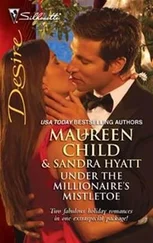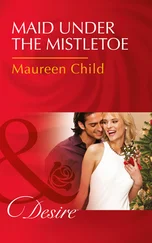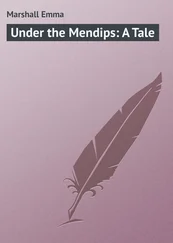“Who is that, madam?”
“The unfortunate woman, Lily. Her mother treated her badly. I saw such on many an occasion. She must have finally retaliated. You said another boy was killed. It seems to me highly plausible that he was a witness to the first crime and the poor lunatic woman killed him also.”
Murdoch now knew that wasn’t what had happened, but he wasn’t going to tell her yet.
“According to Freddie, Lily ran away before Mrs. Shaw was killed and did not return until the next day. I don’t believe she murdered her own mother.”
Maud gave a small shrug. “An intruder then–”
“Unlikely. The boy says he heard two people come to the house the night of the murder. Annie Brogan admits she was the first visitor, but she swears she left Dolly quite alive.”
“Perhaps she is lying.”
Maud was fickle in her choice of suspects.
“I don’t think so. The person who came afterward is the one I’d like to talk to. Freddie couldn’t tell if it was a man or a woman, but Mr. Golding heard somebody leaving the Shaw house about two o’clock in the morning. He had no doubt it was a woman he heard.”
“In spite of what you say, we’re back to the daughter then, aren’t we? She’s a husky woman.”
Maud Pedlow was exhibiting more steel at the centre than he would have expected.
“Dolly Shaw was drunk. If she had fallen and knocked herself senseless, it wouldn’t take much physical strength to hold a pillow on her head, just great emotional resolve.”
There was a long silence, more stiffening of the jaw, then Maud said, “If Dolly wrote a begging letter to me, I am sure she wrote to others. I was far from being her only client.”
“The boy swears there was only one letter. She wrote it immediately after she saw the newspaper article about your nephew’s reception.”
“Mr. Murdoch, you are hounding me. I shall be forced to discuss the matter with my husband.”
“In which case I would be forced to explain why I am asking you these questions, ma’am. You have good reason to want Dolly Shaw silenced.”
“I find that an extremely impolite remark.”
Murdoch almost laughed outright. “Politeness seems a little irrelevant in the case of murder, wouldn’t you say, ma’am?”
Maud chose not to reply but she seemed more distressed. He pressed the advantage.
“To come back to Mr. Henry Pedlow for a moment. You say he is of an equable temperament? Is he a loyal person?”
“Yes, I suppose so.”
“If he thought the happiness of you and your husband was at stake, might he lose that even disposition?”
“How can I answer such a question? However, I…”
“Please continue, ma’am.”
Her voice was shaky when she replied. “I have been concerned about him. It is most upsetting to contemplate the implication of your question but–”
Again she faltered. Murdoch couldn’t quite tell if he was in the presence of an actress of Sarah Bernhardt ability or if she was genuinely afraid of the possibilities.
“Why are you worried about your nephew?”
“He has shown signs of instability since returning from India, the sun–”
“Instability, ma’am?”
“Oh, I am sorry. I am not a physician. I shouldn’t have said–”
“You don’t need a medical degree to use the word. What do you mean by ‘instability’?”
“He laughs at inappropriate moments, weeps at nothing…he has flown into terrible tempers over the smallest thwarting. A cabman who is too slow, a passerby who bumps him.”
Murdoch regarded her. She was still seated at the piano and as she spoke, her shoulders drooped and her voice was flat. The arrogant veneer had disappeared.
“Do you think your loyal, unstable nephew is capable of murder?”
“If there is extreme provocation, who can ever know what a person is capable of, Mr. Murdoch.”
She had avoided a direct answer but Murdoch got the message. She suspected Henry had killed Dolly and she was no doubt happy about it.
“Where would I find Mr. Pedlow now?”
“He is staying at the Avonmore Hotel. He said he had an important engagement this afternoon. I am certain he will be there!”
Murdoch went towards the door. He turned to take his leave.
Mrs. Pedlow was staring straight in front of her, and the expression on her face was one of utter anguish.
Henry Pedlow had woken early but he was still sitting in his pyjamas in the armchair beside the bed. A waiter had tapped on the door to deliver his breakfast but he’d sent him away with a surly command. Food seemed irrelevant to him. He was surprised when he came out of his reverie and saw it was after eleven o’clock. He had no recollection of what he had been thinking in the past four hours. He didn’t believe he had fallen back to sleep, but the time had vanished, wiped away like a mark on the beach. Stiffly, he got to his feet. His limbs ached and his throat was on fire. The doctor had warned him, of course. It would get worse. A man of few words, he had only added, “We have morphine or opium for the pain, but in the end…” He shrugged. Henry hadn’t known this physician long, only since he had arrived back in Toronto, and he knew the man disapproved of him, despised him for the disease. Not that Henry could blame him. He himself was filled with self-contempt. What a fool he’d been. What a stupid, stupid fool.
He began to pace, swept with a surge of emotion so violent he couldn’t stand still. He slammed his fist down on the sideboard, making the ornaments bounce. Stupid! Stupid! Fool! He’d been warned as soon as he arrived in India. “Watch for the fire-ships. You can’t always tell. Even the young ones can have it.” But the soft, dark eyes, the compliance of the women proved irresistible.
As suddenly as it had come, his anger vanished. He burst into tears. He couldn’t stop. Sobs racked his chest, hurting him, burning his throat. He finally forced himself to stop crying, not because the grief was over, but because the physical pain it created was too severe.
He was lying facedown on the bed, his head buried in the pillows. He didn’t remember moving there. Again he checked the clock. He had lost another half hour. Or had he? Was it ten past eleven when he had last looked? It was now almost noon.
Groaning, he got up off the bed. He’d asked for a fire to be laid and he walked over to the fireplace, struck a match, and lit the paper. The flames leaped, ready to lick around the coal. He waited for a moment but he was afraid to be still for long, too many thoughts rushed in. He went over to the escritoire by the window. The hotel provided stationery, rather good quality letter paper with the hotel crest at the top. He sat down, took one sheet, unscrewed the top of the inkwell, dipped in the pen, and wrote in large letters, “To Whom It May Concern.”
He supposed he could address it directly to the detective who was investigating the case but he had forgotten his name.
She hadn’t told him immediately, letting him meet Sarah and recounting the story she gave out to the world. This is my ward, and so on. It wasn’t until she’d received the letter from Dolly Shaw that she told him the truth.
Henry’s thoughts shied away, the shock of that revelation overwhelming him again.
He pulled up the window blind a few inches and gazed down onto the street. A carriage went by, the horse splashing in the rain-filled ruts. The driver, his waterproof glistening, flicked his whip and the horse broke into a canter. A man and a woman huddled together beneath a black umbrella as they hurried towards the hotel. He could see they were not young and something in the way they leaned in to each other, the closeness, suggested a conjugal familiarity.
Читать дальше











